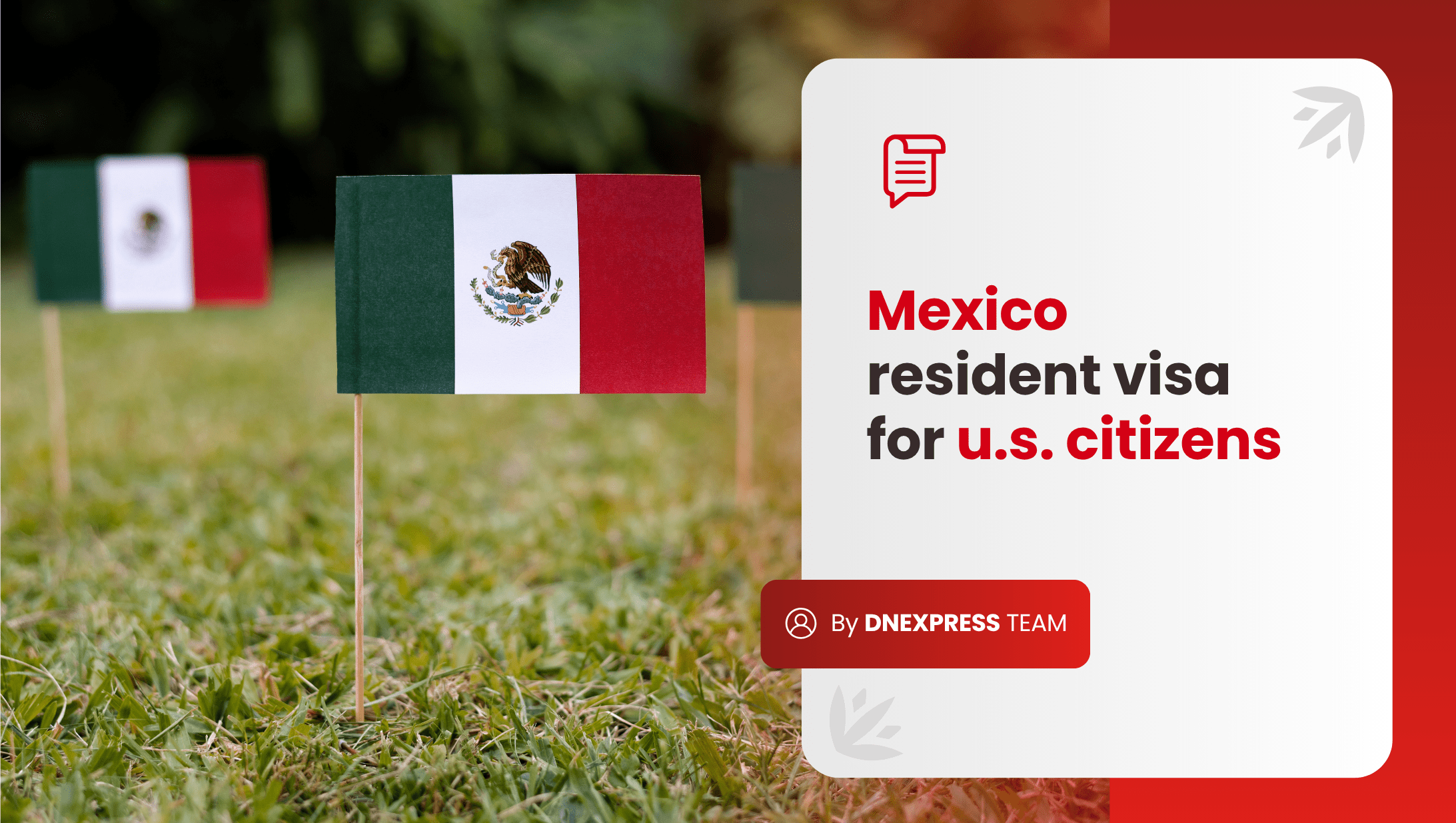
If you're a U.S. citizen looking to live in Mexico long-term, you'll need a Mexican resident visa, either temporary or permanent.
The process begins at a Mexican consulate, requires proof of income or savings, and must be finalized inside Mexico through a step called Canje.
Depending on your situation, you might qualify through retirement, family ties, or financial means. Each path comes with its own rules, risks, and timelines.
Some applicants are even able to bypass financial requirements altogether.
If you're overwhelmed or unsure where to start, Doble Nacionalidad Express can guide you through every step. We help from choosing the right consulate to avoiding the paperwork pitfalls that cause so many U.S. citizens to get denied or delayed.
Want the full breakdown, including insider tips, solvency checklists, and how to avoid getting marked as a tourist at the border? We've got you covered below.
Let's get started.
Step-by-Step Guide to Getting a Mexican Resident Visa
Getting residency in Mexico can feel like a maze, especially when you're dealing with inconsistent consulate rules, confusing income requirements, and the dreaded “Canje” step most blogs don't explain well.
Here's exactly what you need to know.
1. What Kind of Mexican Residency Visa Do You Need?
There are two main paths: Temporary Residency and Permanent Residency.
The right one for you depends on your goals, finances, and whether you have Mexican family ties.
Temporary Resident Visa (Residente Temporal)
For stays over 180 days but under 4 years.
Initially valid for 1 year, renewable up to 4 years total.
Allows you to open bank accounts, buy property, and apply for healthcare, but you'll need to renew it periodically.
Permanent Resident Visa (Residente Permanente)
Best for retirees or those with strong financial means or family ties to Mexico.
No renewals required. You get to stay indefinitely.
You're also allowed to work in Mexico without an additional permit.
You don't need to start with a temporary visa. Some people qualify for permanent residency right away, especially retirees, parents of Mexican children, or those married to Mexican citizens.
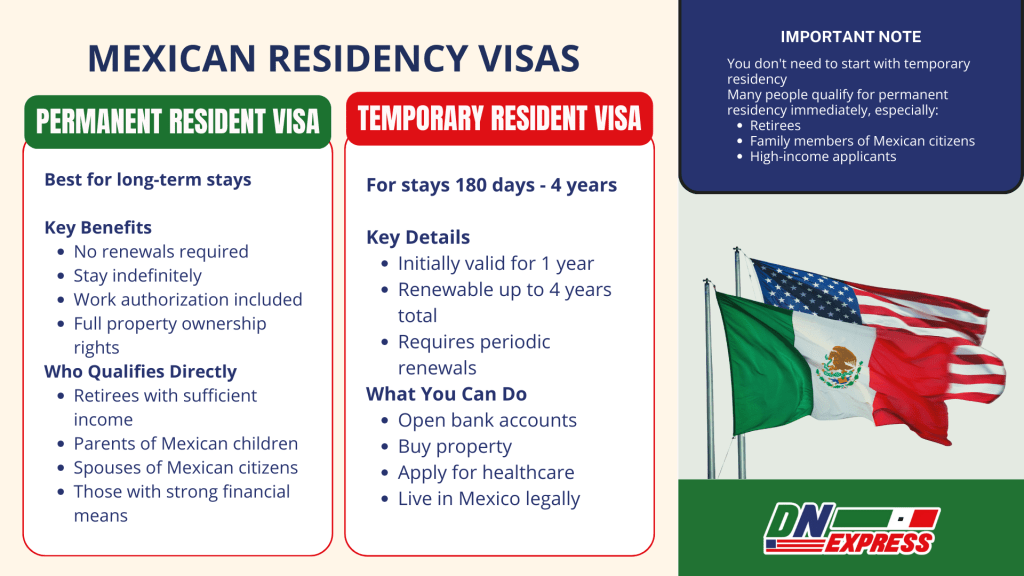
2. Start at a Mexican Consulate, But Not Any Consulate
To begin your application, you'll need an appointment at a Mexican consulate outside of Mexico.
That's non-negotiable.
But here's the catch: Not all consulates are the same.
Some are overwhelmed with 3–6 month wait times.
Others have stricter solvency rules or require in-person documents others accept digitally.
That's why many applicants engage in “consulate shopping,” traveling to consulates like Las Vegas or Phoenix, which are often flexible compared to their California counterparts.
💬 Client Question: “Do I have to go to the consulate in my home state?” ❗ Answer: Nope. You can apply anywhere you can get an appointment, as long as the consulate accepts out-of-state applicants. We help clients navigate this all the time.
3. What Are the Financial Requirements in 2025?
If you're applying through economic solvency, here's what you'll need to show:
Temporary Residency (Estimated Based on 2025 MXN Wage)
Monthly income: At least $4,083 USD (net, not gross).
Or savings: Over $68,000 USD, consistent for the last 12 months.
Permanent Residency
Monthly income: Around $6,800 USD.
Or savings: Roughly $272,000 USD held consistently.
Some consulates are stricter than others. For example, some won't accept retirement accounts unless they show regular monthly deposits.
The safest route? Use 12 months of checking/savings statements with clean, consistent income.
“What is the minimum amount in my retirement account to qualify?”
It depends. Most consulates accept IRAs, pensions, or Social Security if you can prove consistent income deposits for at least 6 months.
4. Qualify Through Family, No Proof of Income Required
You may be eligible to apply without showing income or savings if you're related to a Mexican national or a resident.
This is one of the most powerful (and underused) routes.
You can qualify if:
✅ You are married to a Mexican citizen
✅ You are the parent of a Mexican child
✅ You have a child who is already a resident in Mexico
We've helped dozens of parents and spouses gain residency without showing a single bank statement. If you're unsure if you qualify through family, we'll help you find out in your free case review.
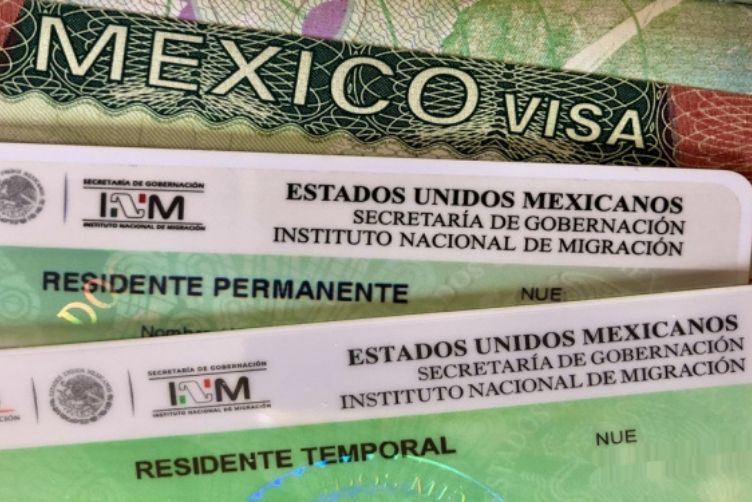
What Happens Once You're Approved?
Getting your visa approved at the consulate is a big milestone, but you're not done yet.
There's one final step: the Canje process inside Mexico.
5. Finalizing Your Residency: The “Canje” Process
“Canje” means exchange. In this case, it refers to exchanging your stamped visa (from the consulate) for your actual resident card inside Mexico.
This part is handled at INM (Instituto Nacional de Migración).
⏳ You Have 30 Days to Act
Once you enter Mexico with your visa, you have 30 calendar days to visit an INM office and start the Canje process.
Miss that window, and your visa becomes invalid. This means you'll have to start over from scratch.
Entering Mexico Correctly Is Key
Here's a mistake that can ruin your entire application:
📄 Double-check your FMM (Forma Migratoria Múltiple) to make sure it reflects the correct visa status.
If your FMM says “tourist” instead of “residente,” INM may reject your Canje application even if everything else is perfect.
We prepare all our clients with a step-by-step travel checklist, including exactly what to say at the border and how to avoid mistakes like this. We even coordinate timing so you don't accidentally trigger the 30-day countdown too early.
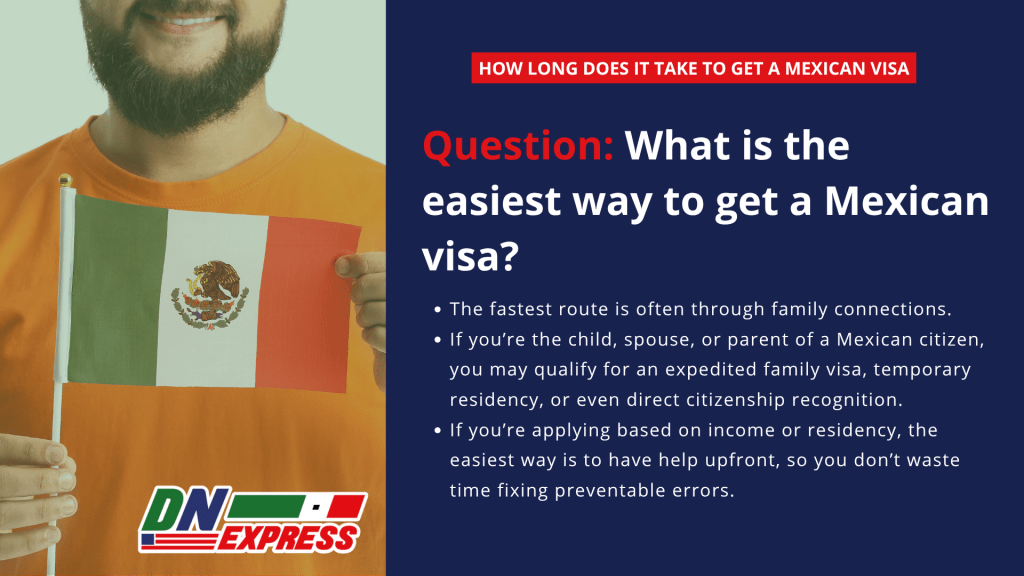
What Can You Do With Mexican Residency?
Residency in Mexico goes beyond legal status. It unlocks practical benefits that can change your life.
Whether you plan to retire, work remotely, or keep your options open, Mexico continues to attract increasing numbers of international residents according to OECD data. Here's what you gain as a temporary or permanent resident.
Open a Mexican Bank Account
Once you have your resident card, you're eligible to open a bank account in Mexico.
This makes it easier to pay bills, make transfers, or buy property without jumping through hoops.
Enroll in Public Healthcare (IMSS)
Residency gives you access to IMSS, Mexico's public healthcare system, which many expats use for affordable medical care.
You can also enroll in private insurance or pay out-of-pocket at world-class hospitals. The choice is yours.
Many of our clients keep their U.S. healthcare and use Mexico's system for everyday care, prescriptions, or emergencies.
Work Legally in Mexico
Temporary residents can work with permission from INM.
Permanent residents don't need a separate work permit. They can work freely.
This is especially useful for digital nomads, freelancers, or U.S. citizens starting a business in Mexico.
Buy or Sell Property in Your Own Name
Unlike tourists, residents can buy and sell estate without relying on trusts or third-party arrangements.
This makes property ownership simpler and often tax-efficient.
Avoid the Visa Run
With residency, you no longer need to worry about 180-day tourist limits, extensions, or “perpetual tourist” crackdowns.
You can come and go from Mexico freely. You can even live there part-time.
Import Your Car or Belongings
Residency allows you to apply for a TIP (Temporary Import Permit) for your foreign vehicle. You can even nationalize it in some cases.
You can also bring household goods tax-free if done within the allowed window.
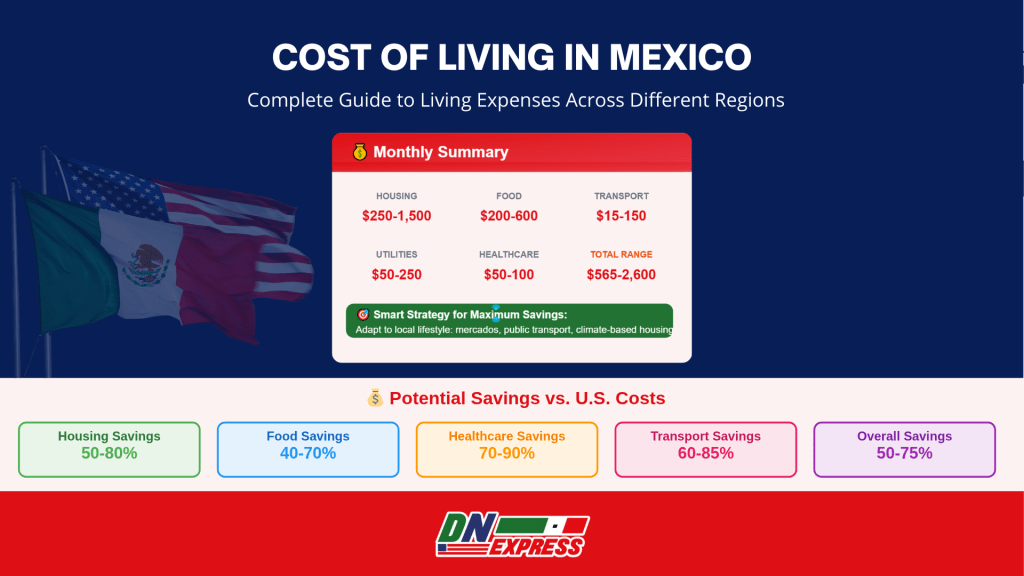
Issues, Mistakes & Myths
Even the most organized applicants can get tripped up by confusing rules, inconsistent consulate policies, or internet myths.
We've seen every mistake in the book and helped clients recover from them.
Let's clear up a few of the biggest misconceptions:
“You Can't Apply Again If You're Rejected”
Wrong. There's no mandatory waiting period if you're denied at one consulate.
You can apply again at the same or different location. With the right support, many of our clients are successful on their second try.
We specialize in helping people recover from rejections, especially those who were turned away for solvency or paperwork issues.
“You Have to Move to Mexico Full-Time”
Not true. You don't need to give up your life in the U.S. or move full-time.
Many of our clients live in the U.S. and hold Mexican residency so they can visit freely, buy property, or keep their options open.
Be sure to renew your card in person when it's due.
“The Rules Are the Same at Every Consulate”
Unfortunately, no. Each consulate can interpret the rules differently, from how much savings you need, to whether they accept investment accounts, to how they review your bank statements.
That's why we help clients consulate shop strategically, guiding them to locations with clearer, favorable procedures.
“You Need to Speak Fluent Spanish to Apply”
Fluency helps, but it's not required, especially if you have a team supporting you.
Our bilingual attorneys and staff handle every part of the process in plain English so you never feel confused or overwhelmed.
Why Use DNExpress for Your Residency Visa?
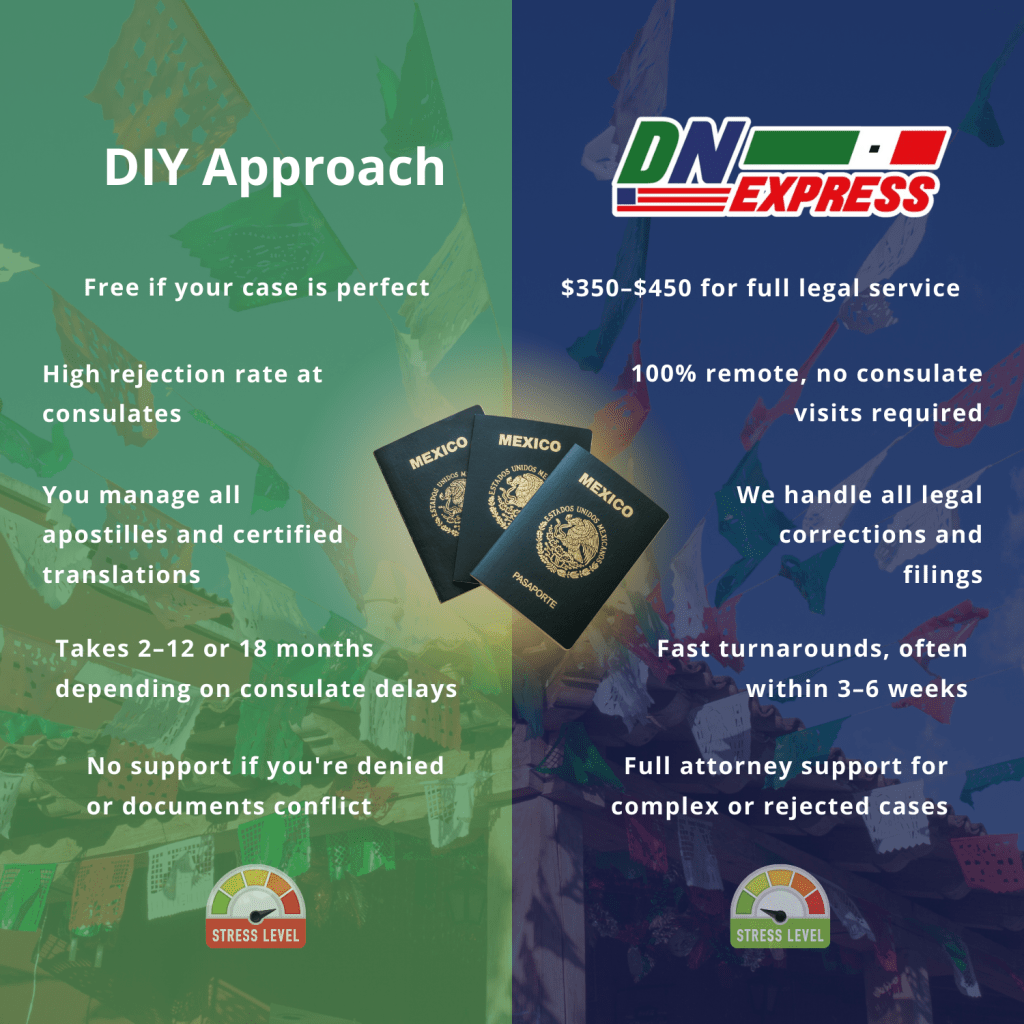
If you're feeling overwhelmed, frustrated, or tired of getting the runaround from the consulate, we understand your situation.
That's exactly why I started Doble Nacionalidad Express.
As a binational legal service run by licensed Mexican attorneys, we've made it our mission to help U.S. citizens, especially those with Mexican roots, reclaim their legal identity and peace of mind across borders.
Here's how we can help you get it done right the first time:
Legal Representation, Not Document Mills
We're not a document mill. Our team includes licensed Mexican attorneys who understand how immigration law works on both sides of the border.
We advocate for you at every step.
Consulate-Free Identity Recovery
In many cases, we can secure Mexican documents and citizenship without you ever having to step foot in a consulate.
If you've been turned away before or can't travel, this is a game-changer.
We Handle the Hard Stuff
Whether you're missing a Mexican birth record, have name mismatches, or don't know how to prove solvency, we've seen it all.
Our services cover:
- Birth certificate corrections
- Family-based residency filings
- INM support during the Canje process
- Apostilles, translations, and everything in between
Transparent, Affordable Pricing
No vague estimates. No surprise fees.
We offer flat-rate services with payment plans because legal identity shouldn't be a luxury.
Specialists in Denied or Difficult Cases
Most of our clients come to us after trying (and failing) to do it on their own.
We specialize in recovering rejected cases, fixing broken filings, and guiding families who don't know where to start.
We pioneered consulate-free dual citizenship services for Mexican-Americans. We don't file, we fight for your right to be recognized legally, culturally, and personally.
The Downsides of Doing It Yourself
We get it. The idea of handling your Mexican residency on your own might seem doable at first.
But immigration law goes beyond paperwork. It's timing, strategy, and avoiding the tiny mistakes that can derail your entire plan.
Here's what most DIY applicants don't realize until it's too late:
Risk of Rejection From One Missing Document
Consulates reject applications every day over solvency math, account types, or incomplete paperwork.
Worse, they often don't tell you why, leaving you guessing and starting over from zero.
Language Barriers at INM or the Consulate
Even if you speak some Spanish, the language of immigration bureaucracy is a whole other beast.
One wrong answer or form can delay your residency or void it altogether.
No Support if Something Goes Wrong
What happens if the consulate misfiles your documents? Or INM gives you the wrong card length?
When you go it alone, there's no one to step in or fix it.
Travel and Timing Mistakes Can Cost You
From entering Mexico marked as a “tourist” instead of a resident, to missing your 30-day Canje window, these mistakes are frequent.
They're also completely avoidable with proper guidance.
Pro Insight: Most of our clients came to us after getting denied or ghosted by the system. It's almost always cheaper and faster to do it right the first time.
Studies show that Mexico continues to see growing interest from U.S. residents seeking residency options, making proper guidance increasingly valuable.
Want Help From a Team That Gets It?
We built DNExpress for families like yours. People who want to reconnect with their roots, protect their rights, or live with fewer barriers on both sides of the border.
We handle everything so you don't have to
Your Legal Identity Is Your Right. Let's Reclaim It.
We don't prepare documents. We restore legal identities, reconnect families, and fight for your right to be recognized in the U.S., in Mexico, and everywhere in between.
Ready to Get Started?
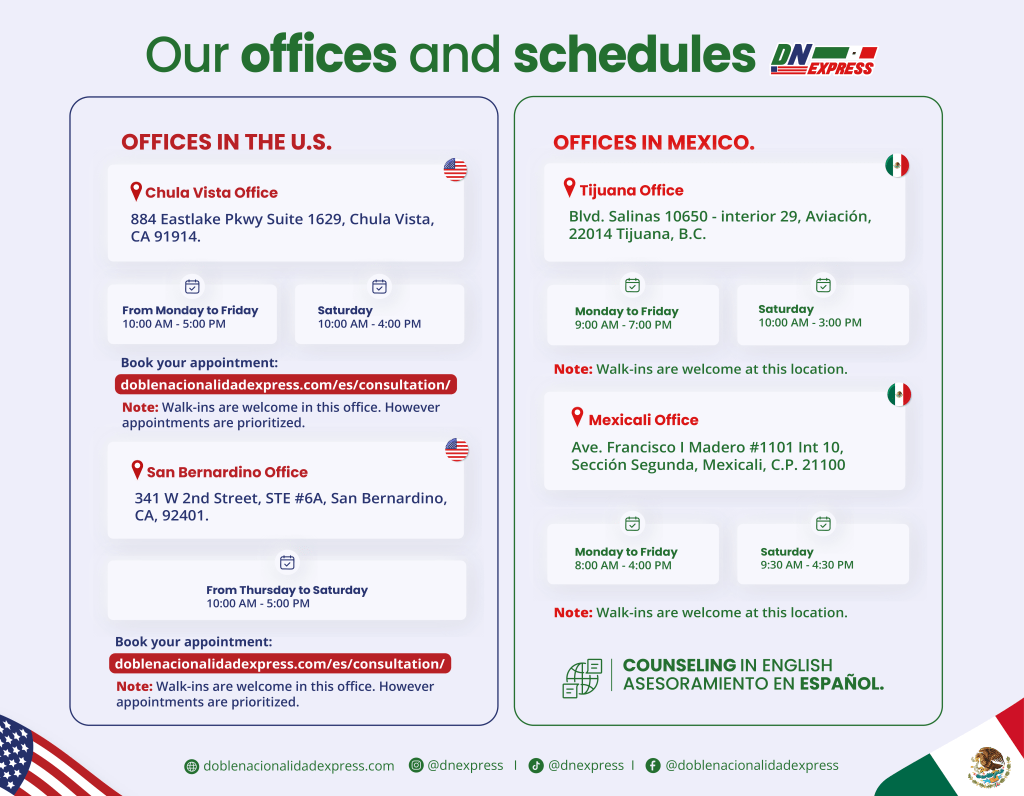
Doble Nacionalidad Express Offices and Schedules.
Whether you're applying for residency, reclaiming your nationality, or want to explore your legal options, we're here to make it simple, clear, and fully supported.
International guidelines consistently emphasize the importance of proper documentation and legal compliance when establishing residency abroad.
We handle everything so you don't have to
Your Legal Identity Is Your Right. Let's Reclaim It.
We help U.S. citizens and Mexican-Americans secure the residency or dual nationality they deserve.
No consulate chaos, no legal guesswork, and always with licensed, bilingual specialists by your side.
Let's make your life on both sides of the border fully recognized, legally and culturally.
FAQ
Can I retire in Mexico as a U.S. citizen?
Yes. Many retirees use pensions or Social Security to qualify for permanent residency and enjoy a lower cost of living, access to healthcare, and cultural familiarity.
Can I collect Social Security while living in Mexico?
Absolutely. The U.S. government allows you to receive Social Security benefits abroad, including in Mexico.
Do I lose my U.S. citizenship if I get Mexican residency?
No. Residency is not citizenship, and it does not impact your U.S. status. You can live in Mexico while keeping all your rights as a U.S. citizen.
Is $2,000/month enough to live in Mexico?
In many parts of Mexico, yes, but it may not qualify you for residency via income. If you're applying through family or using savings instead, it may still be possible.



